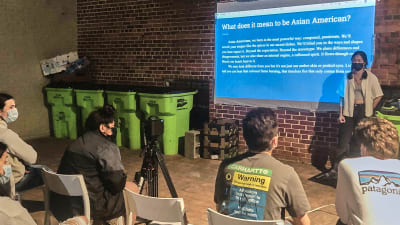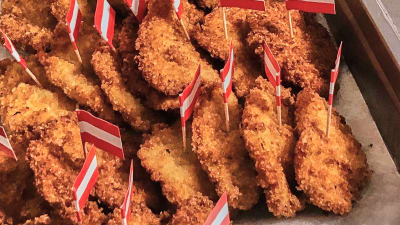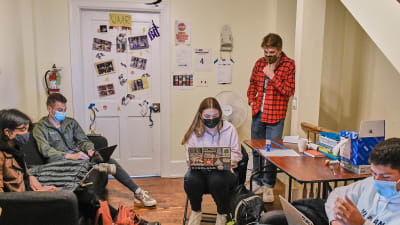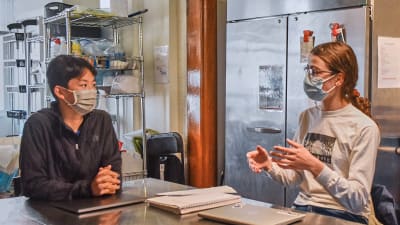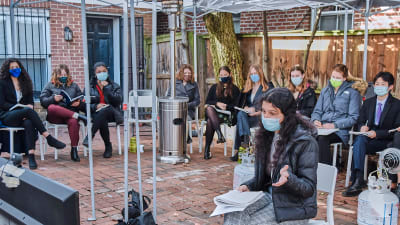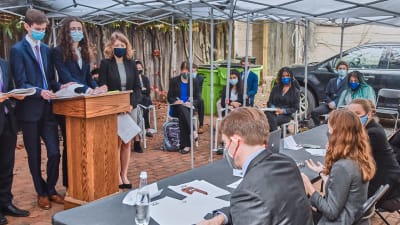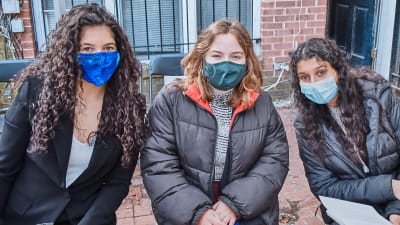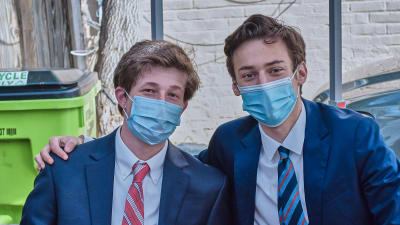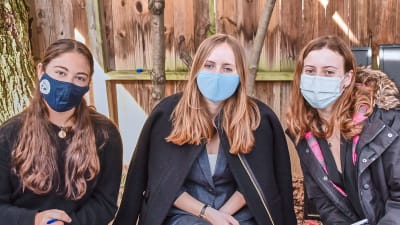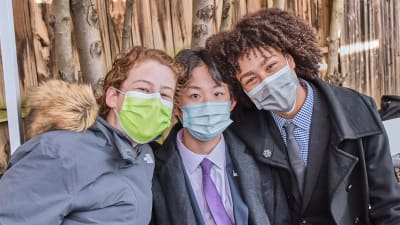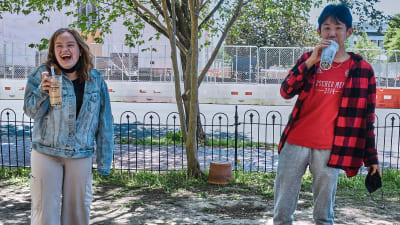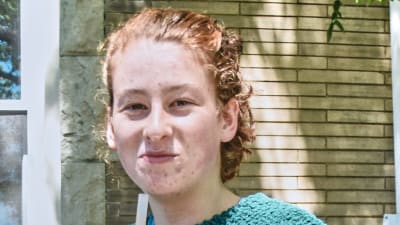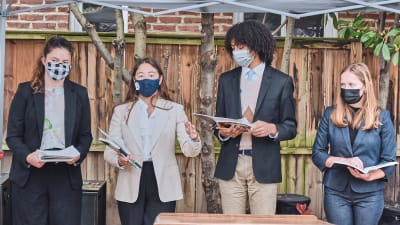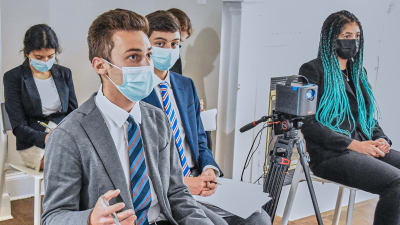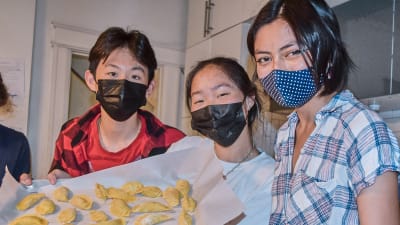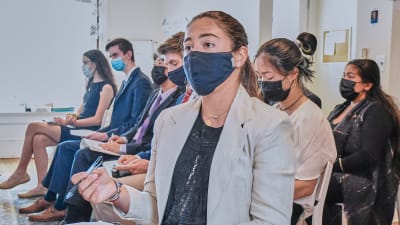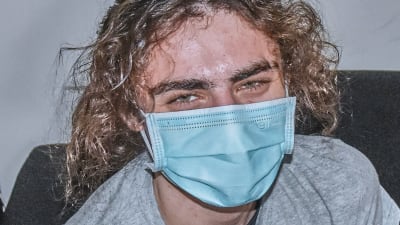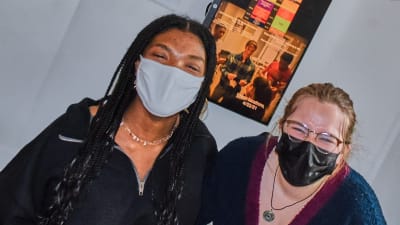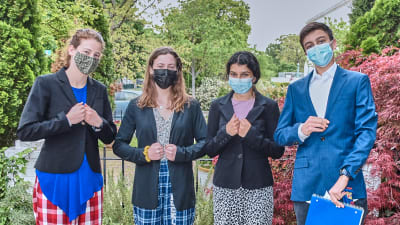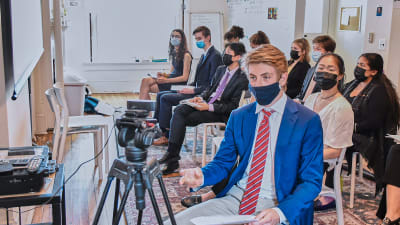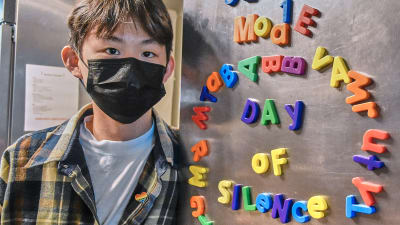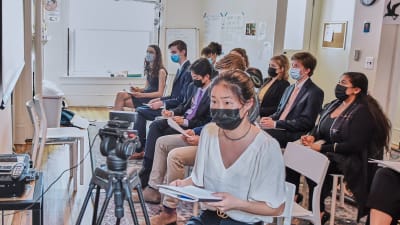Spring 2021 DC presents capstone policy document to former National Security Council and White House Economic Council member
Will you be ready when you testify before Congress? Defend your PhD thesis? Argue before the Supreme Court? After the past few weeks, each of our students is better prepared for these challenges. The reason? Their capstone collaborative policy document experience.
The collaborative policy document (or “CPD,” as our students call it) is arguably SEGL’s most difficult academic challenge. Each SEGL cohort must select a current international crisis, research that crisis and collaboratively craft a 40-page scholarly document which is then presented and defended in front of real-world policymakers.
This semester chose China’s “Belt-Road” initiative as its topic. The debate over the topic was particularly passionate (the students were deadlocked 12-12 with the second choice for several days) and required thoughtful negotiation to confirm.
After this decision, the students split into six sub-groups, each with a different area of expertise. They then spent a (virtual day) in the George Washington University main library, with full access to the University’s resources. David Ettinger (the top international relations/political science research librarian at GW), who has been a student favorite since our first semester, started with an entertaining orientation session so that the students know how to use the myriad databases in the GW system (this is also good preparation for undergraduate life!), and then the students were off to research.
The groups investigated the current situation and drafted dozens of policy recommendations. The research process also involves reaching out to experts for phone interviews. (This requires ingenuity and a bit of courage and often leads to excitement and insight.) This spring, the students also benefited from a briefing with Sam Gerstle at The Asia Group. Gerstle, a former advisor to senior Defense Department officials, helped students bridge the gap between their research and real life.
The students also spent a morning presenting and defending preliminary research before a faculty mock panel of experts–the notorious “Review Panel”–each of whom asked questions as stridently as a Supreme Court Justice, Member of Congress, or dissertation committee member might. (Ask a student for the Panel’s unofficial name!) The panel’s slings and arrows proved invaluable when it came time to present the document.
After compiling their research for several days, the students created rough drafts that our faculty critiqued. Students discuss, disagree, research, and revise, and then it is time for the final presentations. Each semester we try to meet with on-the-ground policymakers who have the ability to incorporate our students’ ideas into actual policy.
This spring we visited with Daniel Rosen, founding partner at the Rhodium Group and Senior Associate/Trustee at the Center for Strategic and International Studies. Rosen served on the National Security Council and White House Economic Council under President Bill Clinton, and was a key player in China’s inclusion in the World Trade Organization. Rosen proved a collegial but incisive though partner, peppering six “student witnesses” with challenging questions that pushed their knowledge and required them to think on their feet.
After the presentation, Rosen lauded the students. Genuinely impressed, he offered to help mentor those who were interested in pursuing this issue further. Later, he sent a follow-up note to our faculty underscoring his feelings.
Afterwards, the students expressed satisfaction and a bit of relief. They had done the research and had the preparation to engage in meaningful conversations about a complex current issue with a top expert. What an achievement!
Meanwhile, our student-generated community building continues. Among other highlights, last week saw students organize a “day of silence,” a multifaceted Asian American and Pacific Islander teach-in and celebration, a decades dinner, surprise food gifts from parents and graduates, and a student-cooked Austrian feast. And then there were the “May Day” festivities–you’ll have to ask a student about them!
Want to read the document for yourself? You can download it here.

